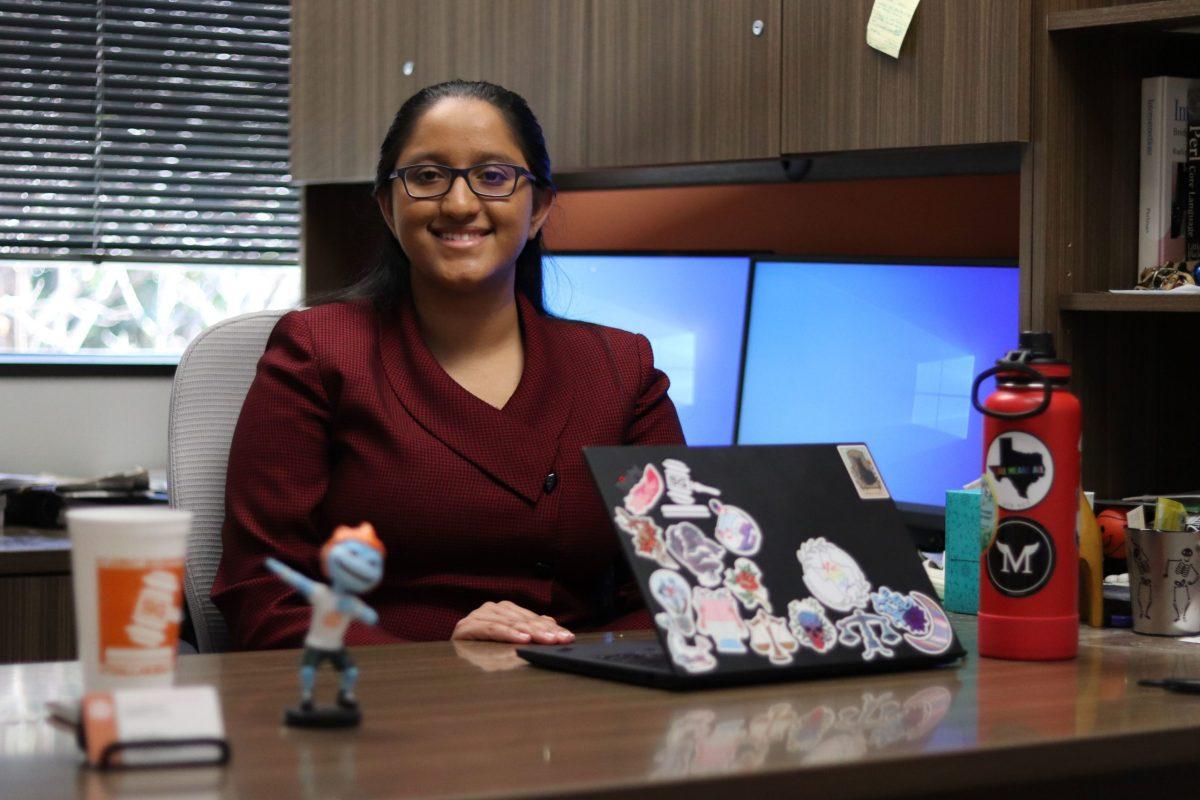Comets share how they handle the unique experience of being an international student. One in six Comets are international students
More than 5,000 international students from over 100 countries attend UTD — representing over 60% of the graduate population, according to data from OISDS. And while international students report intense pressure from work, financial burdens and culture shock, resources like the Career Management Center, Student Counseling Center and the International Students and Scholars Office can lessen their struggle.
International students deal with the combined pressures of loneliness and assimilation combined with the financial struggles of an average student. For example, in a survey done by the Office of Undergraduate Education with over 8,100 responses, 20% of respondents said they could not afford to see a dentist, doctor or mental health specialist in the past 12 months. And the fight for international students persists after graduation, where non-STEM majors on F-1 visas can only stay in the U.S. up to a year and a half, and STEM majors get an additional year to find work.
CITS junior Siddhant Patel is an international student that transferred from an H-4 visa, which covers dependents of work visa holders, to a school-sponsored F-1 visa, for students. Patel said he had struggled to find companies offering work sponsorships, and that there was also intense competition from master’s students, many of whom are also international students.
“You have the intelligence of someone that lives here, and the problems of someone that doesn’t,” Patel said. “It’s really the most disadvantageous point in your life that you will ever have to apply for a job.”
Patel has tried to overcome the competitive nature of the job market by going to the Career Management Center. which assisted him in personalizing his resume, but F-1 students still have a disadvantage in the job market. According to a 2022 study by the National Bureau of Economic Research, only 23% of international students who have a master’s degree will find a job within-state after graduation. To increase his chances of landing a job, Patel changed his major as a sophomore from finance to CITS, and as part of the switch he had to fly to India and reenter the U.S. with his F-1 under an CITS major.
International students also experience unique financial difficulties, as F-1 students cannot engage in unpaid or volunteer internships, training opportunities or unpaid work without authorization. This requires completing Curricular Practical Training, or CPT, as well as enrolling in an additional 1-credit hour course, which adds to the cost of tuition and fees. Srivani Edupuganti, cognitive science senior and Student Government president, said that while JSOM offers the option of a zero-credit CPT internship course for F-1 students, eligibility is conditional and only applies for one’s first semester of a CPT internship. Edupuganti said this option, if expanded, could help reduce costs for students who want to work over the summer.
“This policy for international undergraduate students is affecting a really limited population,
which is why my ultimate goal would be to get a zero-cost option for any international student who wanted to do an internship unless they wanted specifically to do it for credit.” Edupuganti said.
Despite these problems, both Edupuganti and Patel said the International Students and Scholars Office helped tremendously with documentation and legal requirements in switching to an F-1 visa. The ISSO focuses on the needs of students with F-1 visas and J-1 visas, reserved for those in a work or study-based exchange program. The ISSO also educates students on the requirements of CPT and how to apply or switch visa types.
Comets not under these visa types can book an appointment for free with the immigration attorney provided by SG. The attorney cannot represent students in court, but can provide free advice on students’ rights under immigration law; appointments can be booked by emailing [email protected].
Josephine Vitta, the International Center’s director, said the Office of Immigrant Citizenship will be established in the fall. Previously, the center catered towards F-1 and J-1 students., while the new office will service refugees, asylum seekers and legal permanent residents.
“We’re looking at … approximately 2,000 students who are permanent residents, and so we want to be able to partner with community organizations,” Vitta said. “For example, if they want to go through the citizenship process, to have clinics on campus so they can understand what ‘s involved.”
For international students that need more support, the Student Counseling Center offers free sessions and can match students with a specialist to talk about their troubles. Sharif Labib, JSOM sophomore, came to UTD from Bangladesh on an F-1 visa and stressed the importance of having a support system.
“They just need one close bonded person to help them and then they can find any resources, especially if they can get close with the locals here … a bond between a U.S. and international student would make both of their journeys stronger because they would share both of the knowledge with each other and together they can grow,” Labib said.
Edupuganti said she wishes that Comets would be more empathetic toward international students, as they have not had the experience of “uprooting” their life to move somewhere completely new, with legal troubles on top of culture shock.
““You may be irritated by something another person does, but being kind and not being cruel is really important,” Edupuganti said.





